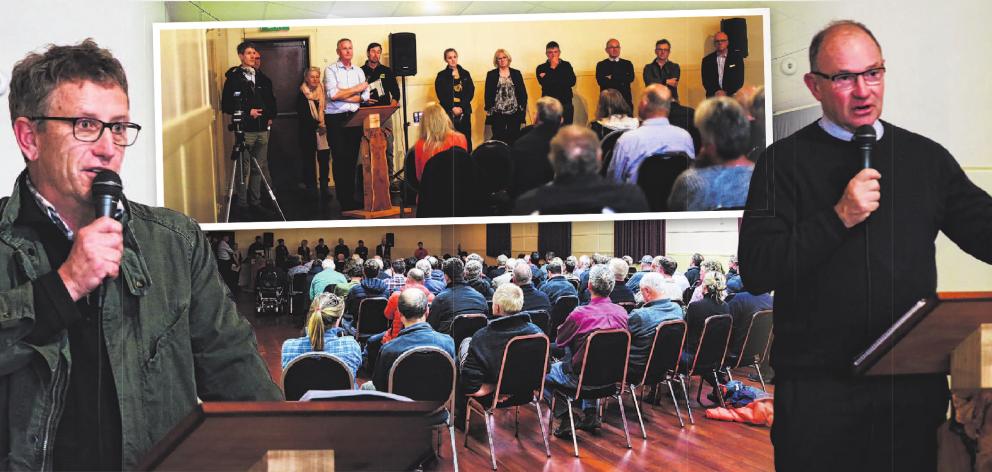
Speaking at a public meeting on carbon forestry last week, Mr Taylor, who is also the managing director of Port Blakely, said Waitaki farmers should not miss the opportunity to take advantage of forestry.
"I agree there are places that are inappropriate for forestry, particularly for permanent carbon forestry, [but] I do not subscribe to the ideology that ... the primacy of sheep and beef as rural land use is sacrosanct," he said.
"See [carbon farming] as a threat, that’s fine, because it will have impacts on rural communities, but please don’t discount it as being an incredibly valuable tool to allow you to improve the economic efficiency of your farms and to be able to hand them on to future generations in a more stable form."
Two public meetings on carbon forestry have been held in North Otago recently, sparked by concerns about the sale of Hazeldean, a 2500ha farm near Tokarahi, to New Zealand Carbon Farming (NZCF), which plans to plant about 1500ha in a permanent pine forest to help mitigate climate change through carbon credits.
Many of the 150 people at Monday night’s meeting cited various environmental concerns about the impact of carbon forestry on the Kakanui River, a mistrust of NZCF, and worries carbon forestry conversions were not subject to the same level of scrutiny as other land use changes.
Five Forks farmer Jane Smith suggested the word "farming" was no longer used in association with carbon forestry.
"The term farming suggests you are looking after a resource sustainably, long-term, into perpetuity — and this certainly is not," Mrs Smith said.
"So let’s call it carbon mining."
Other speakers included Waitaki District Council staff, chief executive Fergus Power, mayor Gary Kircher, Otago regional councillor Kevin Malcolm, National MPs Jacqui Dean and Ian McKelvie and New Zealand Forest Service and Federated Farmers representatives. NZCF and government ministers David Parker, Damien O’Connor and James Shaw were invited to the meeting, but did not attend.
Since the first public meeting on May 4, the Waitaki District Council had undertaken a survey at Hazeldean with an independent ecologist, and started investigating allegations of illegal earthworks at Fairview.
The council was preparing a submission to Fire and Emergency New Zealand’s consultation on the Otago Fire Plan, and looking into a district plan change, to include greater controls on carbon forestry.
It had also been lobbying central government for change to the National Environmental Standards for plantation forestry. At present it did not cover carbon forestry, so it did not come under the same scrutiny.
Mr Malcolm said regional and district councils had been put in a very tough position by the Government.
"Our plans are simply not robust and strong enough to cater for what has come down," he said.
"Whether they intended the consequences or not, it’s been thrown at us so we now have to work together, and it’s exciting that we are actually working together to make sure we get our regional policy statement correct and our land and water plan for 2023 correct and in line with our district plan."
North Otago Federated Farmers president Jared Ross said farmers had a big part to play in reducing emissions — and many were already farming their way to near carbon neutrality.
"Why is it that we’re looking to chase something like 400,000ha of required plantation forestry in the next 15 years, because that’s what our Climate Commission have calculated as a requirement to meet our emissions targets?
"If we’re farming in a near carbon-neutral space, why are we chasing targets of that magnitude?"












